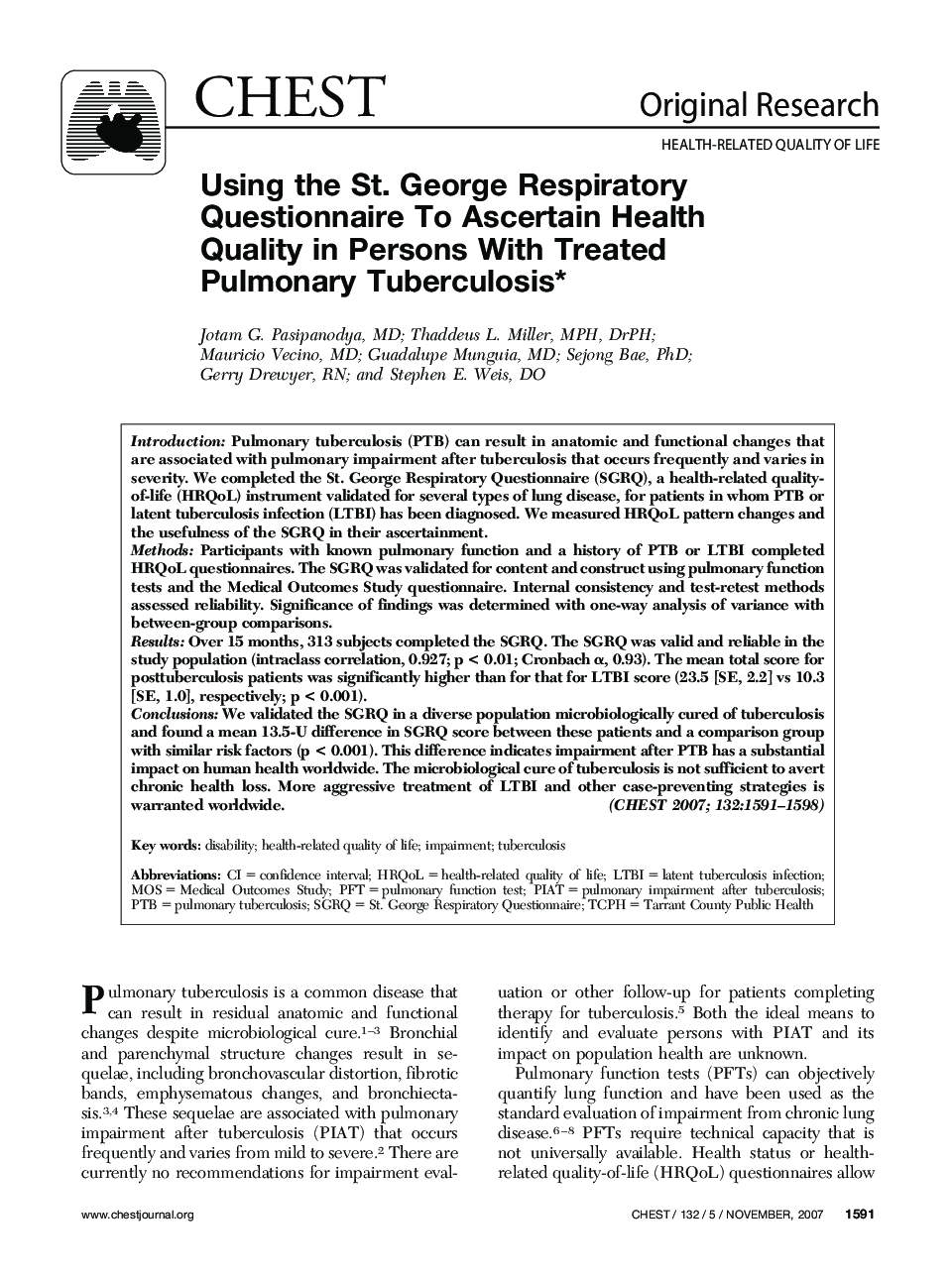| Article ID | Journal | Published Year | Pages | File Type |
|---|---|---|---|---|
| 2904437 | Chest | 2007 | 8 Pages |
IntroductionPulmonary tuberculosis (PTB) can result in anatomic and functional changes that are associated with pulmonary impairment after tuberculosis that occurs frequently and varies in severity. We completed the St. George Respiratory Questionnaire (SGRQ), a health-related quality-of-life (HRQoL) instrument validated for several types of lung disease, for patients in whom PTB or latent tuberculosis infection (LTBI) has been diagnosed. We measured HRQoL pattern changes and the usefulness of the SGRQ in their ascertainment.MethodsParticipants with known pulmonary function and a history of PTB or LTBI completed HRQoL questionnaires. The SGRQ was validated for content and construct using pulmonary function tests and the Medical Outcomes Study questionnaire. Internal consistency and test-retest methods assessed reliability. Significance of findings was determined with one-way analysis of variance with between-group comparisons.ResultsOver 15 months, 313 subjects completed the SGRQ. The SGRQ was valid and reliable in the study population (intraclass correlation, 0.927; p < 0.01; Cronbach α, 0.93). The mean total score for posttuberculosis patients was significantly higher than for that for LTBI score (23.5 [SE, 2.2] vs 10.3 [SE, 1.0], respectively; p < 0.001).ConclusionsWe validated the SGRQ in a diverse population microbiologically cured of tuberculosis and found a mean 13.5-U difference in SGRQ score between these patients and a comparison group with similar risk factors (p < 0.001). This difference indicates impairment after PTB has a substantial impact on human health worldwide. The microbiological cure of tuberculosis is not sufficient to avert chronic health loss. More aggressive treatment of LTBI and other case-preventing strategies is warranted worldwide.
